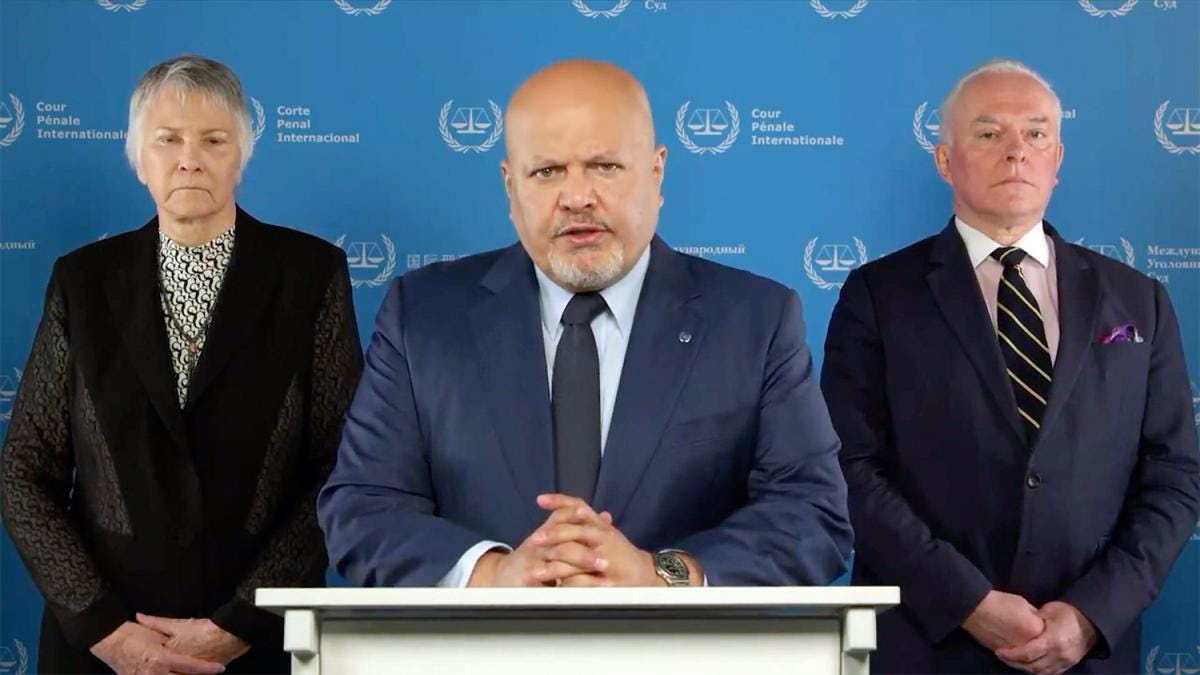Israel, Hamas and the Enduring Value of the ICC
The International Criminal Court proves its worth
In the summer of 2003, I had a chance but meaningful encounter with Luis Moreno Ocampo, the first top prosecutor of the International Criminal Court. He was appointed to the job a few months prior and was in The Hague setting up the new court. I was an intern across town at the International Criminal Tribunal for the Former Yugoslavia (ICTY), doing intern-things to support prosecutors on the Slobodan Milosevic case. Our team had just wrapped up a key portion of the trial against the former Serbian leader and a senior official at the ICTY invited us out for a drink as a thank you. It was a nice gesture for such a senior person to include even us lowly interns in this happy hour, and when I arrived at the bar this senior official was in deep conversation with Ocampo.
Ocampo insisted on buying everyone a round of drinks. But the drinks weren’t totally free. He wanted our advice. The ICC would officially open its doors in six weeks. This would be first standing war crimes court, not tied to any individual conflict. He was in somewhat uncharted territory. He went around the small cocktail table, asking each of us to offer him some advice for his new job. I said something unremarkable about hiring good interns. But when it came to that very senior ICTY official, he said something that I think resonated with Ocampo.
This senior official lamented the fact that in his view, in the ICTY’s early years, it went after too many lower level officials, wasting time and resources that should have been devoted to building cases against top leaders of the Balkan civil war. In retrospect, he was probably correct. The establishment of the ICTY was widely celebrated as a victory for justice in and of itself. But in its first few years of operations, it had little to show for it. It would not be until the 2000s that more senior leaders, including Milosevic himself, would face justice.
It would seem that Ocampo took this advice to heart. Two years later, the ICC would issue an arrest warrant for Joseph Kony and his top lieutenants. Kony lead a vicious militia in Uganda and the Central African Republic called the Lord’s Resistance Army. By the time of the warrant in 2005, Kony and his LRA had gained international notoriety for conscripting child soldiers and forcing these children to commit unspeakably cruel war crimes. Kony and the LRA are no longer much discussed, but 20 years ago he was internationally notorious. The fact that he was the first person for whom an ICC arrest warrant was issued suggested to the world that, indeed, the ICC would go after leadership and not just underlings. After Kony, the Ocampo-era ICC went after other top militia leaders, including a lesser known but no less vicious commander in the Democratic Republic of the Congo named Thomas Lubanga, who will forever be known as the first person convicted by the ICC for crimes against humanity.
In retrospect, these militia leaders were warm-ups for Ocampo’s top targets: senior political leaders, including a sitting president. In 2007 he sought arrest warrants for Uhuru Kenyatta and William Ruto, two Kenyan politicians implicated in election related violence that left over a thousand people dead. The cases were eventually dropped (witnesses suddenly went silent) and both men would later go on to serve as Presidents of Kenya. But there was an extraordinary moment in 2013 when Kenyatta—by then president of Kenya — traveled to the Hague to defend himself before the ICC. Before the end of his term, Ocampo would indict Omar al Bashir, the president of Sudan, for genocide in Darfur— the very first time that the ICC would issue an arrest warrant for a sitting head of state.
By the time Ocampo left office in 2012, the ICC had six open investigations—all in Africa. There were broad criticisms that the ICC was essentially a European court designed to prosecute Africans. In part to quell these criticisms, ICC members appointed the Gambian jurist Fatou Bensouda as the next chief prosecutor. She was far less of a media hound than her predecessor and behind-the-scenes worked to expand the court’s remit beyond Africa.
This included Israel and Palestine.




